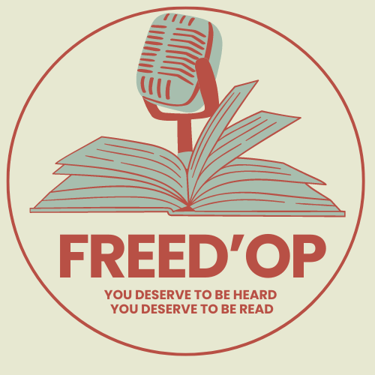The great Tragedy of Generation Z
Leonard Sivik
4/27/2025
Generation Z have been raised in an era of constant crisis and change. Making a brief list of the important historical events that Gen-Z has lived through would be near impossible due to the sheer number of them. The 9/11 terrorist attacks, the War on Terrorism, the Great Recession, the wave of Islamic terrorism in Europe, the COVID-19 pandemic, and the Russian invasion of Ukraine are just some of the major events Gen-Z has grown up with. For us, there is no normal. Nevertheless, one development in particular has had a much greater impact on people's lives than any other singular event in the 21st century. I am, of course, talking about the introduction of the smartphone and the increased access to the internet.
I still remember the time before my dad gifted me and my brother an iPad for Christmas. Back then, it was the best day of my life. Looking back at it, that Christmas opened the rabbit hole that would lead to a severe dopamine addiction. A few months later, I remember having a conversation with a friend where I proudly proclaimed that “the only thing I find fun is playing games on my iPad” (or something to that liking; this was 14 years ago).
If I could change one thing in my life, it would be to resist the temptation of “the screens”. It is first now, some years later, that I realize how truly surreal it is for someone around the age of 7 to be talking about his iPad the way a junkie talks about his substance abuse. This is the great tragedy of Generation Z. Since we came out of the womb, we have been test subjects to whatever gizmos Silicon Valley has decided to throw our way.
What began fairly harmless (Angry Birds, YouTube videos, Minecraft), quickly took a turn for the worse. The situation escalated with the Covid-19 pandemic, which coincided with the increasing popularity of short-form, algorithm-boosted content. This is when the weed was switched for Heisenberg's meth. It cannot be understated how catastrophic the likes of TikTok, Instagram Reels, and YouTube Shorts have been for the younger generations, yet no one seems willing to acknowledge it.
This is my motivation for writing this piece. Somewhere between the conversations of TikTok being owned by the Chinese and Twitter being bought by Elon Musk, the discussion about dopamine addiction can best be described as being swept under the rug. Why is this? One could argue any one of the million possible explanations: Evil capitalist corporations are profiting off young people's attention and are censoring the debate on social media; there are about a billion more tangible issues in the world right now; lazy parents do not want to lose their substitute for giving their kids attention. What is the actual explanation? Most likely a combination of most of the factors.
At this point in time, I am sure most people have come across at least one article that has a headline along the lines of: “Study shows young people read less” or “Gen-Z ditch the book for their phones”. This development should hardly surprise anyone. From the perspective of neuroscience, it makes perfect sense. Dopamine is the chemical that provides the brain with stimulus. Back in the good ol’ cave days, the brain used dopamine to motivate us to get food, find shelter, and have motivation to procreate.
In modern society, little work is needed to get food and shelter (granted you have the socioeconomic status to do so, but that’s beside the point). The last point is still a work in progress, but will likely remain so as long as we care more about what others think about us rather than what we think about ourselves (also beside the point). The point is that large parts of society no longer have to struggle to please their primal urges. The brain, as complex as it is, still wants that sweet dopamine. The brain is incredibly lazy, and it will take the quickest route to get its next fix.
The quickest route to a dopamine fix has evolved with society. At least one caveman likely ditched his nightly pondering of the sky to look at the cool painting his friend Kragg drew up in the same way Gen-Z ditched the book to doomscroll brainrot on TikTok.
The world faces multiple global problems. Global warming, a changing international order, rising wealth inequalities, exacerbated political rifts, the rise of AI, the age of misinformation, etc. As pointed out to me by an older fellow a few months ago, people from Generation Z are likely going to be the ones to steer the world out of these potential crises. Boomers are too busy making the world worse before dying, Generation X is preoccupied learning how to act like Boomers, and Millennials are bringing up their children with some (ever so) slight help from modern technology. This leaves Generation Z. (This text is not meant as a dig at other generations. However, due to my frustration with the situation at hand, it may at times appear that way).
Obviously, this development is far from desirable. Something has to be done. Everyone has to play a part if we want to rid current and future generations of screen addiction. Parents, politicians, and young people all need to pull their weight if we want to see change. Parents must stop treating computers, iPads, phones, etc., as a substitute for parenting. Too many kids are the victims of what is essentially neglect as their parents give them unfettered access to the internet at too young of an age.
Politicians need to seriously (in my opinion) consider a ban on social media for everyone under 16. The brain is at its most vulnerable and impressionable when developing. Why should kids, at their most vulnerable stages of development, have their brains filled with toilets with heads sticking out of them (?) and all kinds of AI slop content?
Lastly, young people, Young people are the ones most affected by screen addiction and, coincidentally, also the ones with the least say in how the technology is regulated. The best, most simple thing we as young people can do to combat the current development is to actively resist the urges. Getting rid of any addiction is difficult, but taking an active role in it is the second step (the first step is to admit that you are addicted, which I really hope most people have accepted at this point). Every now and then, resist the temptation to scroll, and instead pick up a book, go for a walk, study, bake some cookies, stare into the abyss, ponder the meaning of life, write an article about screen addiction, or any of the other 10,000 things you can do instead. Only if anyone pulls their weight will we get out of this mess.
“Don’t be a slave to the machine yo” Socrates.
Leonard Sivik


